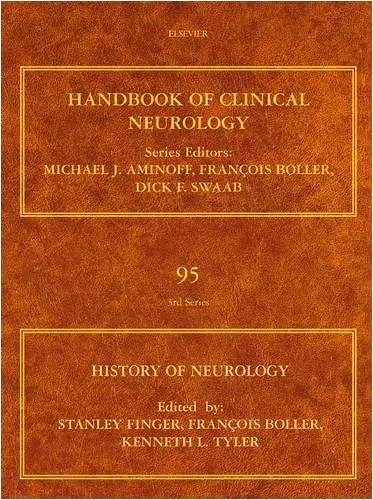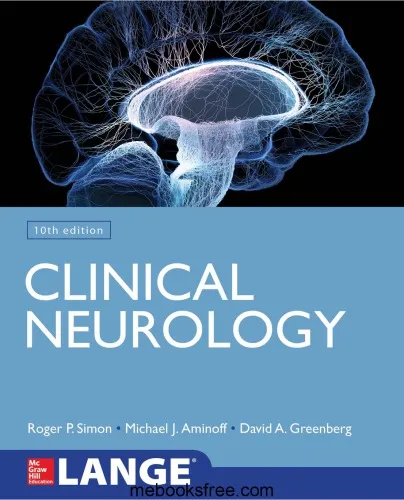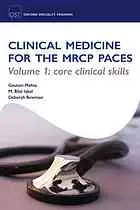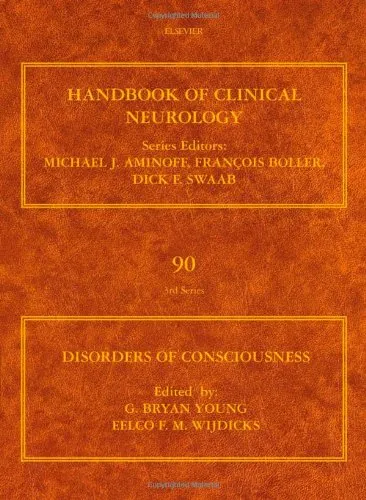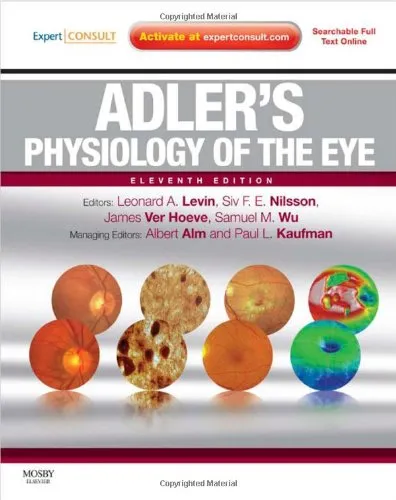History of Neurology: Handbook of Clinical Neurology (Series Editors: Aminoff, Boller and Swaab)
4.8
Reviews from our users

You Can Ask your questions from this book's AI after Login
Each download or ask from book AI costs 2 points. To earn more free points, please visit the Points Guide Page and complete some valuable actions.Related Refrences:
Welcome to the 'History of Neurology: Handbook of Clinical Neurology', an illuminating compendium that chronicles the rich and intricate tapestry of the field of neurology. This book explores the landmark discoveries, significant figures, and historical contexts that shaped the development of neurological science. Edited by esteemed series editors Aminoff, Boller, and Swaab, and authored by Stanley Finger MD, François Boller MD PhD, and Kenneth L. Tyler MD, this volume serves as a crucial resource for anyone interested in the evolution of medical knowledge concerning the brain and nervous system.
Detailed Summary of the Book
The 'History of Neurology' is an exhaustive exploration of the development of neurology from its nascent early days to its current standing as a cornerstone of modern medicine. This volume is carefully curated to trace the chronological progress of neurology, highlighting the pivotal discoveries that have significantly impacted clinical practices and theoretical understandings. Spanning across centuries, the book begins with the ancient interpretations of neurological disorders and progresses through various epochs of medical history, including the Renaissance, the Enlightenment, and the contemporary era.
Notable elements of this book include discussions on the works of pioneers such as Thomas Willis, whose contributions in the 17th century formed the foundational concepts in neuroanatomy and neurophysiology. The text delves into the profound impact of the 19th-century neurological revolution, fueled by figures like Jean-Martin Charcot and Sigmund Freud, which expanded the understanding of neurological diseases beyond merely observable symptoms.
Each chapter of the book is dedicated to different epochs or themes, packed with scientific insights, biographical sketches, and the socio-political influences that shaped neurology's progress. Furthermore, it addresses the evolution of diagnostic technologies, from early dissections to modern neuroimaging techniques, and how these have revolutionized patient care and treatment methodologies.
Key Takeaways
- Neurology has a rich and diverse history that is intricately tied to broader developments in medical science and technology.
- The progress in neurology has been influenced by various scientific, cultural, and political factors, demonstrating the interdisciplinary nature of its evolution.
- Understanding the history of neurology provides valuable insights into current practices and can inspire future research and innovations.
- Key historical figures played crucial roles in transforming speculative concepts into concrete scientific doctrines.
Famous Quotes from the Book
"The journey through the history of neurology is as much a study of the human condition as it is a scientific endeavor, reminding us that the past continually shapes our understanding of the brain."
"In tracing the historical paths of neurology, we witness the resilience of human curiosity and the relentless pursuit of understanding the most complex organ in the body."
Why This Book Matters
'The History of Neurology: Handbook of Clinical Neurology' matters because it provides a comprehensive reference point for medical professionals, historians, and students interested in the origins and progress of neurological sciences. By weaving together stories of scientific breakthroughs and the personal accounts of neurology's key figures, this book helps readers appreciate the context in which significant advancements were made. Understanding these histories allows modern neurologists and clinicians to ground their practice in the lessons of the past, potentially avoiding historical pitfalls and reviving lost insights.
This book is not just a collection of historical anecdotes; it is a critical academic endeavor that underscores the importance of learning from history to enhance and guide future neurological research. In a field that continues to rapidly evolve, having a well-documented archive of its history reminds us of the discipline's roots and the ethical and methodological foundations upon which current practices are built.
Free Direct Download
You Can Download this book after Login
Accessing books through legal platforms and public libraries not only supports the rights of authors and publishers but also contributes to the sustainability of reading culture. Before downloading, please take a moment to consider these options.
Find this book on other platforms:
WorldCat helps you find books in libraries worldwide.
See ratings, reviews, and discussions on Goodreads.
Find and buy rare or used books on AbeBooks.
1339
بازدید4.8
امتیاز0
نظر98%
رضایتReviews:
4.8
Based on 0 users review
Questions & Answers
Ask questions about this book or help others by answering
No questions yet. Be the first to ask!
